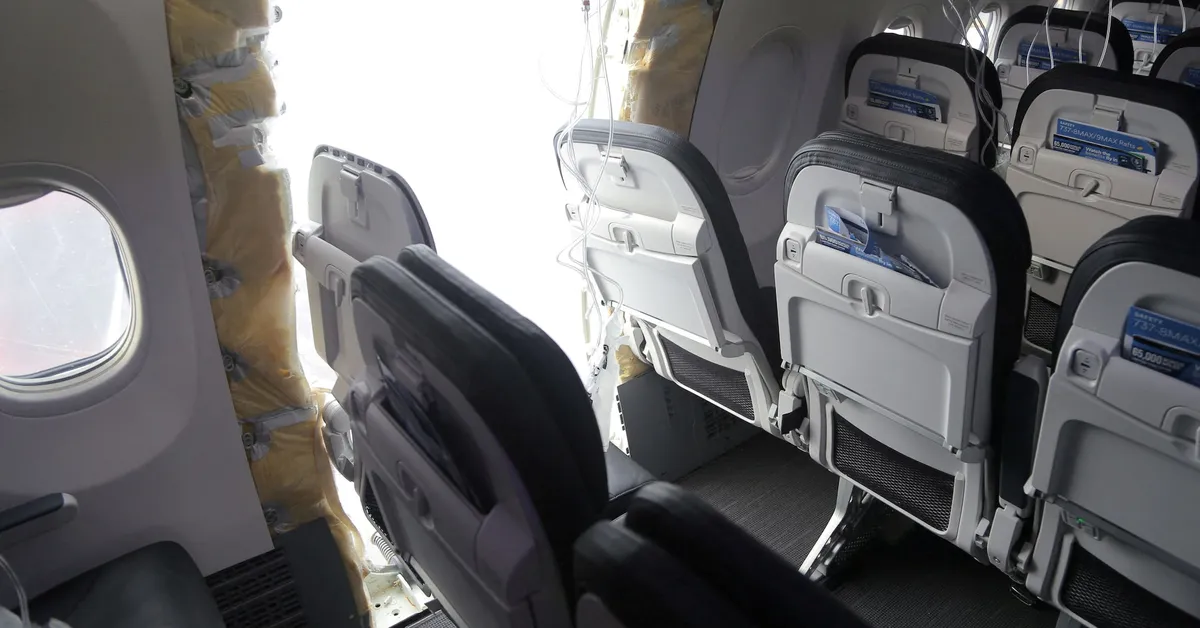
In a recent meeting, NTSB Chair Jennifer Homendy revealed that a significant incident involving Boeing was entirely avoidable. Homendy emphasized that the planemaker had ample opportunities to address unauthorized production issues that had been flagged in various internal audits and reports for over a decade. The National Transportation Safety Board (NTSB) chair stated that the safety deficiencies that contributed to the accident should have been apparent to both Boeing and the FAA.
Homendy expressed that it was nothing short of a miracle that no casualties or serious injuries occurred as a result of the incident. The NTSB highlighted that Boeing's on-the-job training was insufficient, indicating a need for improvement in their safety protocols. To address these shortcomings, Boeing is currently working on a crucial design enhancement intended to prevent the door plug from being closed unless it is securely fastened.
The gravity of the situation prompted the Justice Department to initiate a criminal investigation into Boeing, asserting that the company was not in compliance with a deferred prosecution agreement established in 2021. In light of the recent incident, Boeing's CEO, Dave Calhoun, announced plans to step down in the coming months following the mid-air panel blowout. The NTSB has commended the new CEO, Kelly Ortberg, while also acknowledging the significant challenges he faces in restoring Boeing’s credibility.
This incident has severely tarnished Boeing's reputation, leading to the grounding of the MAX 9 for two weeks and enforcing a production cap of 38 airplanes per month by the FAA, a restriction that is still in effect. The NTSB reported that Boeing failed to produce any documentation concerning the removal and reinstallation of the 737 MAX 9 door plug, a critical component resembling a door that covers an unused emergency exit. Alarmingly, the company is still unable to identify the employees involved in these processes.
Last July, Boeing had agreed to plead guilty to a charge related to a criminal fraud conspiracy following two fatal crashes of the 737 MAX in Indonesia and Ethiopia. However, just last month, the company reached a new agreement with the Justice Department to avoid a guilty plea. The Justice Department is now seeking judicial approval for this deal, which would allow Boeing to evade a guilty plea and the oversight of an external monitor.
As the situation unfolds, Boeing's leadership must navigate these challenges to restore trust and ensure safety in their operations. The findings from the NTSB serve as a stark reminder of the critical importance of maintaining stringent safety standards in the aviation industry.